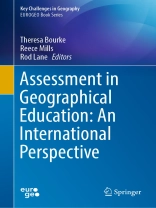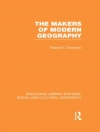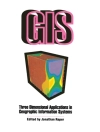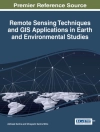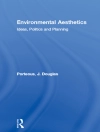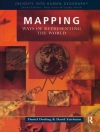In recent years there has been increased attention paid to the importance of assessment in Geographical Education, the chosen subject for this book. Assessment is an important tool for collecting information about student learning and for providing timely data to inform key stakeholders including students, teachers, parents and policymakers. To be effective, assessment needs to be valid, reliable and fair. Validity is about ensuring that we assess what we claim we are assessing. Reliability is about measuring performance and understanding in a consistent way. Without validity and reliability, assessment is unlikely to provide equitable opportunities for students to demonstrate what they know and can do. As geography educators it is therefore important that we identify the core concepts and skills in geography that we want students to master. We need a clear understanding of what the progression of learning looks like for each concept and skill so we candevelop fit for purpose assessments that track and improve student learning. While there is a substantial literature on evidence-based assessment in secondary school contexts, research exploring best-practice assessment in geography is rare. This is a concern given the distinctive nature of geography and the important role of assessment in the learning process.
This scholarly collection seeks to address this issue by connecting research in educational assessment with the domain of geography. The chapters are written by leading researchers in Geographical Education from across the globe. These chapters provide examples of innovation through the collective voices of geography teacher educator scholars from across Australia, USA, South Korea, Germany, Switzerland and Singapore. What unifies the work in this book, is that each chapter focuses on a key feature of the discipline of geography, providing scholarly examples of evidence-based practices for assessing student’s knowledge and skills.
Tabla de materias
Introduction – Surveying the landscape of assessment in geography education.- Binaries and silences in geography education assessment research.- Part I: Assessment related to cross-cutting concepts and skills in geography.- Assessing systems thinking in geography.- Assessment of mapping learning progressions in geography.- Assessing spatial skills/thinking in geography.- Part II: Assessment related to the signature pedagogies of inquiry and fieldwork.- Integrating assessment effectively into international fieldwork: A case study using student-led teaching and learning.- Inquiry-based fieldwork assessment for and as learning in geography.- Part III: Assessment as a social justice endeavour in geography education.- The National Assessment of Educational Progress (NAEP): A closer look at US gaps and trends in geography achievement.- Focusing on quality, forgetting inequalities: Assessment within GIS in the geography Curriculum and Assessment Policy Statement (CAPS) in South Africa.- Part IV: Future directions for assessment in geography education.- Online adaptive assessment of map skills.- Engaging with conceptual acrobatics: Geography assessment standards and rubrics.- Reflecting on the assessment landscape of primary geography.
Sobre el autor
Associate Professor Theresa (Terri) Bourke has worked in the Faculty of Education at the Queensland University of Technology (QUT) since 2009. In that time, Terri has held various coordination roles including Undergraduate Research Pathways Coordinator, Course Coordinator (Bachelor of Education) and Academic Program Director. Her research focuses on three main areas: (1) professionalism, professional standards and quality in Initial Teacher Education (ITE); (2) assessment in geography education; and (3) teacher educators’ epistemic reflexivity for teaching about/to and for diversity for which she has an Australian Research Council (ARC) grant. Terri has an extensive history working with Queensland schools to improve quality, especially in how they use data to inform practice. She has been an invited advisor to both the Australian Curriculum and Reporting Authority (ACARA) and Queensland Curriculum and Assessment Authority (QCAA) for geography. The quality of her researchand teaching has been recognised with 12 prestigious awards at QUT. She is the Co-editor of Geographical Education, the only academic journal in Australia. Terri is the incoming President for the Australian Teacher Educators’ Association Executive Committee.
Reece commenced his educational career as a senior secondary Geography and Earth Science teacher before commencing his current appointment as a Senior Lecturer in Science Education at Queensland University of Technology (QUT). Reece also holds Course Coordinator and School Research Ethics Advisor leadership positions at QUT. Reece’s research examines how education can contribute to socially and environmentally sustainable futures. His research excellence is recognised by his role as Assistant Editor for Research in Science Education and a member of the Editorial Board for Teaching Science. Reece teaches undergraduate and postgraduate units for preservice teachers such as World Regions and Science Curriculum and Pedagogy. His teaching excellence has been recognised by way of four awards including the QUT’s Vice Chancellor’s Performance Award. Reece is committed to using his academic research to generate industry and community benefits that have positive social impact.
Associate Professor Rod Lane is a teaching expert and author who is passionate about helping educators provide transformative and engaging learning experiences for their students. Rod’s role as Deputy Head at the Department of Educational Studies at Macquarie University is to enable educators to confidently apply research-led pedagogies in an innovative and collaborative environment. Rod leads the development of high-quality domestic and international programs that draw on cross-disciplinary expertise and use cutting-edge digital technologies. Rod is a recognised authority on teachers’ knowledge and student learning processes at tertiary and secondary levels. He has published numerous peer-reviewedpapers and is the author of several educational books focused on Commerce, Business Studies and Geography. Rod is currently the editor of AGTA’s journal, Geographical Education. Rod is particularly focused on the field of educational assessment. He consults to schools and industry on the principles of effective assessment design and strategies for building deep understanding. Rod also consults to emerging, expert learning platform Zambesi.com. Rod completed his doctorate in teachers’ domain-specific professional knowledge and strategies for promoting student understanding. His career spans over a decade of experience teaching in secondary schools prior to this and he has multiple awards for learning and teaching, including an Australian Learning and Teaching Council (ALTC) Citation for Outstanding Contributions to Student Learning.
